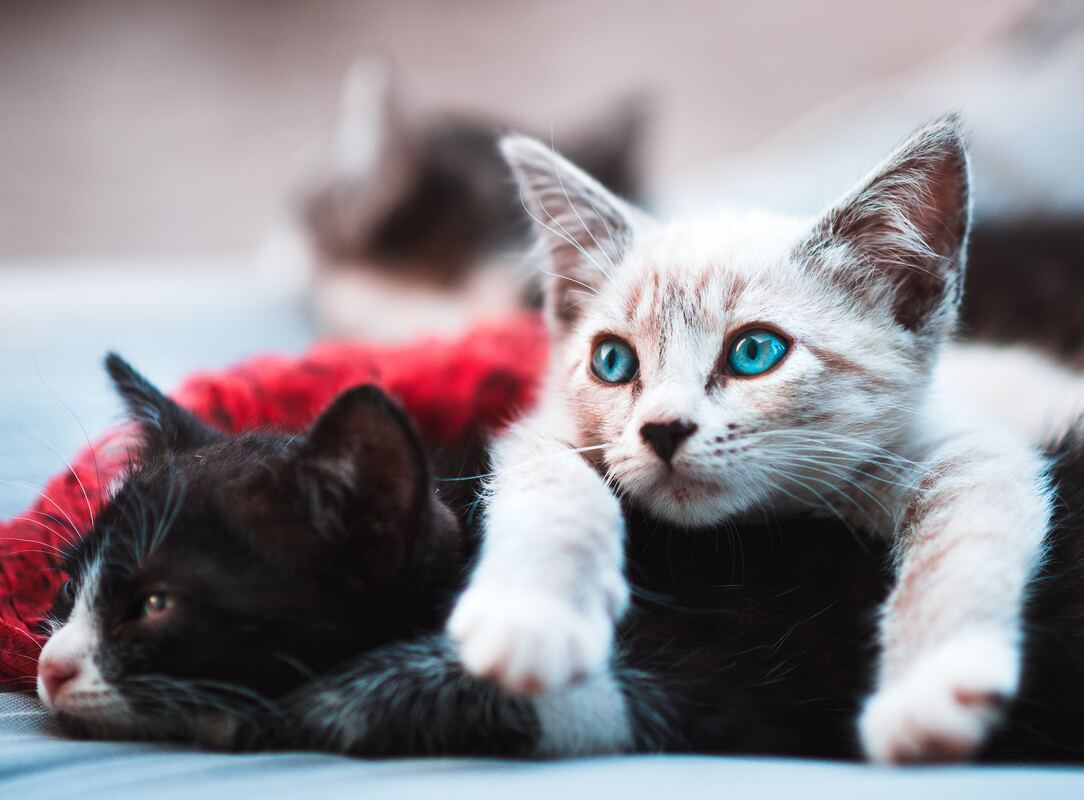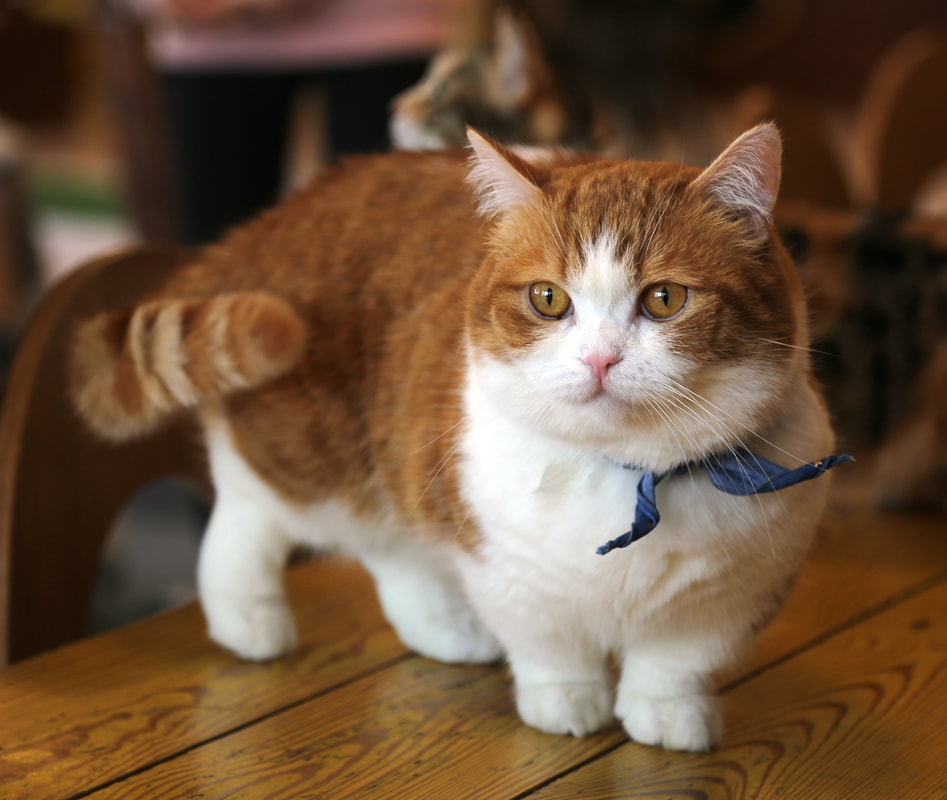|
What Are The Required Vaccines For a Cat?
Since many cats are completely indoor pets, some owners forget how vaccines can still be essential. Having had indoor cats most of my life, I was definitely one of those people who never thought much about vet visits and basic shots for my cat, Guenivere. It seemed expensive and unnecessary, so I avoided them. Once Maddie came along, I decided to be a vigilant cat mom as I wanted the best for this little kitten who was dependent on me for a long healthy life. Even if your cat rarely comes into contact with the outside world, vaccines are still an important part of a feline health regimen. Your cat could develop diseases from foregin bodies you accidentally bring in, at the groomer, at the vet, from a stray or even out in the yard. These are the basic shots and health care items a cat needs and why. Annual Vet Visits Whether you have a new kitten or are adopting a senior cat, an annual visit to the veterinarian is important to keep them healthy. These visits are great times to ask questions, have the vet get to know your cat and establish a relationship. Having an ongoing relationship with your vet is important so in case something does happen, you have that resource there to help. Just like humans, some cats may go their entire lives without major issues, while others are plagued with health concerns from cradle to grave. You just don’t know what will happen over the course of your cat's life so getting that early and regular vet visit started is the best thing you can do for your cat. Necessary Basic Shots Shots and vaccines are another basic component to maintaining your cat’s health. Feline Viral Rhinotracheitis, Calicivirus, and Panleukopenia (FVRCP)
As with any vaccine, these do not guarantee 100% protection. However, they are highly effective and have been in circulation for quite a whole. Even if you don’t see your cat coming into contact with any outside viruses or bacteria, it’s always better to be safe than sorry! It is also always easier to prevent the virus than to deal with a sick cat later and possibly have to put the cat down due to illness. Talk to your vet and see what they recommend and what frequency they will administer. After any vaccine, expect some side effects and give your cat time to rest and recover. If you can’t afford a vet visit, check out national companies such as Tractor Supply, PetSmart, PetCo, and local pet stores for their vaccine clinics and prices. Many customers here at the cat spa use these services and are very pleased with the quick service and menu of options. Some communities offer low cost rabies clinics also. Remember, you are your cat’s first line of defence against these preventable diseases!
0 Comments
Short In Stature, But Big In Personality: The Munchkin Cat
Happy May everyone! This week we'll be exploring the adorable, controversial and short-in-stature-but-big-in-personality Munchkin cat. At the cat spa, we have been lucky enough to board some Munchkin cats. In my experience, these critters are typically adorable and friendly. However, munchkin cats actually have quite a bit of controversy surrounding them. Read on to learn where they came from, what they are, and why they’re up for debate. Where Do Munchkin Cats Come From? Back in 1983, (the same year Rock the Casbah by The Clash was on the charts!), a music teacher in Louisiana found two pregnant cats, and history was made. Most munchkin cats can trace their lineage back to these two cats. The woman named them Munchkins, after the Wizard of Oz characters. Today, this breed can cost upwards of $1k. Of course, you may be lucky and find one at a shelter or foster home. Genetic Mutations Make the Munchkins Most people think of dachshund dogs when they see short legs and long bodies so to see this on a cat is quite a surprise. However, unlike dachshunds, which were carefully bread over 300 years ago, Munchkin cats are relatively new. The genetic mutation that causes their short legs is why the munchkin cat has been controversial over the years. It is a newer breed, recognized by The International Cat Association (TICA) in 1991. However, many other feline associations will not recognize the breed and deem it wrong to breed them. What’s the Problem With Munchkins? Due to their selective breeding, Munchkin cats have super small legs. While these legs can be very cute and entertaining for humans, many organizations have worries over the health effects on the cats themselves. This is because the shortened limbs of the Munchkins make them more prone to joint disease and osteoarthritis. For many people, breeding animals likely to have diseases is a big no-no. On the other side of the argument, Munchkin cats tend to live a full life averaging 15 years. Besides their osteoarthritis and joint issues, they are a generally healthy breed to consider. What is it Like to Own a Munchkin Cat? Munchkin cats can still run super fast but are unable to jump as well as a larger cat so it is best to keep them indoors. Their little legs come in 3 different lengths – standard, super short, and rug hugger. The names are pretty self-explanatory! Having groomed a couple of these cats at the spa, I know their fur can become tangled very easily. Many have longer coats and may have grooming limitations due to flexibility issues. Munchkins come in all different colors and short or long hair. The long hair will need to be brushed daily and even completely shaved from time to time to clean up the coat. If you love a lap cat (who doesn’t?), the Munchkins love to be close and cuddle with you. They love people and are social and crave attention. They can be loud and chatty with the meows so be prepared to give lots of one on one attention! Another funny thing is that they love to take toys or objects and store them away in a hidden place! It sounds very squirrel-like to hide the nuts away for the winter but Munchkins are known to be little hoarders. These tiny cats are big on love and attention so talk to your vet and see if this breed is a good fit for you and your family. |
AuthorWhen Cari has some free time from all the kitties, she likes to share her knowledge of all things cat in this bi-monthly blog. Enjoy the read! Archives
June 2024
Categories |



 RSS Feed
RSS Feed